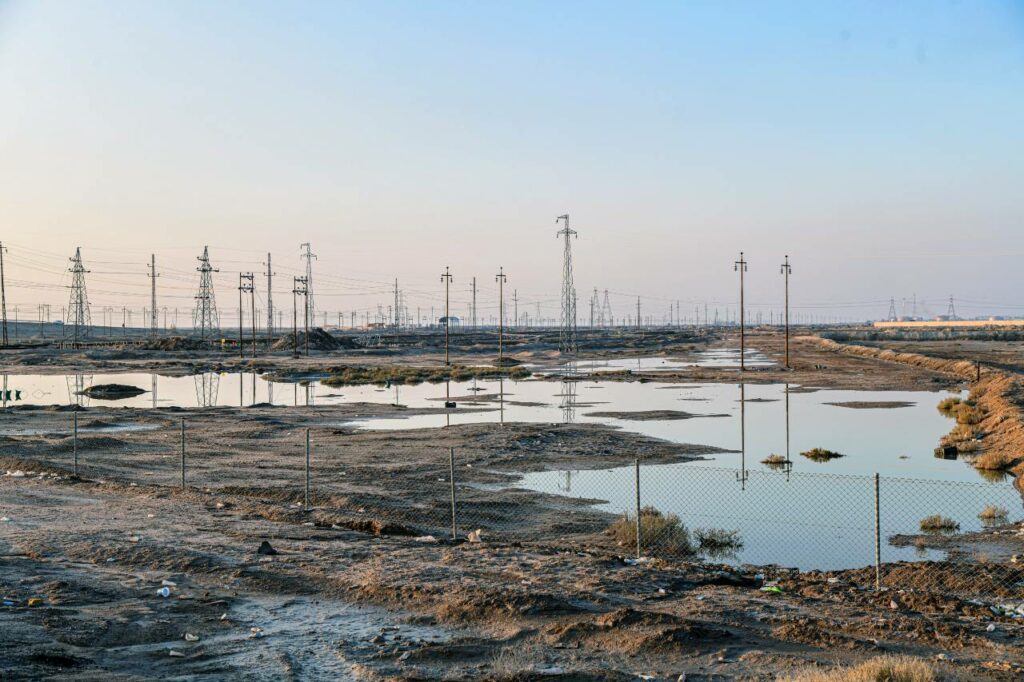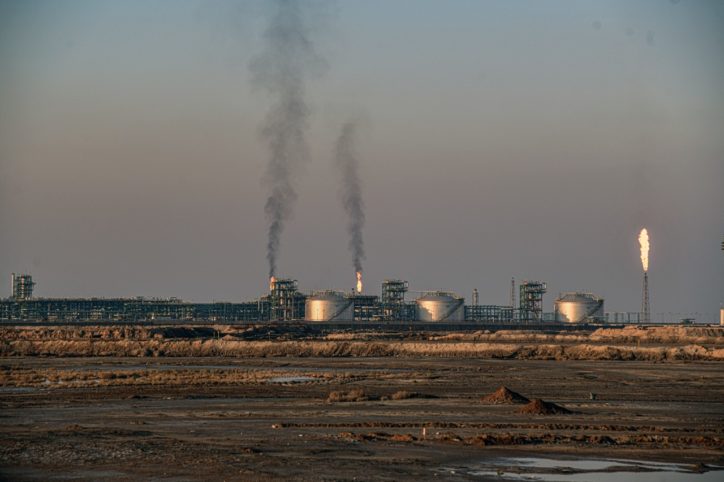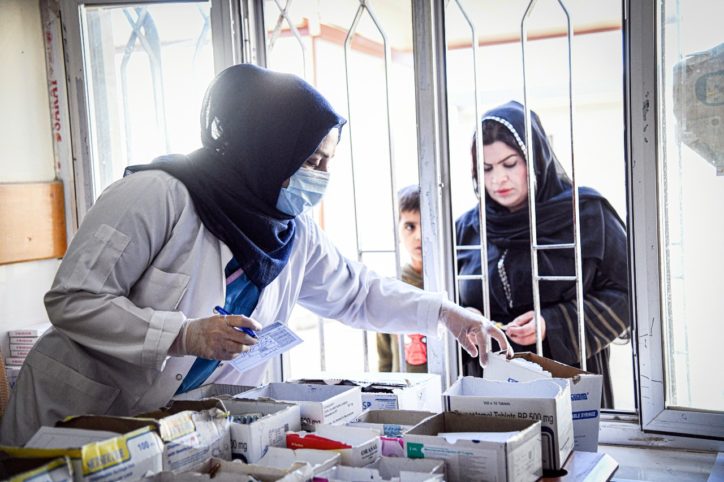Taking climate action is about more than protecting the environment. It’s also about protecting people’s health. In Iraq, fossil fuel extraction and poor pollution management have rendered an important freshwater source for millions of people undrinkable. And dangerous for their health. Cordaid finances research that seeks to reduce the impact of Iraq’s water crisis in the Basra governorate.

The climate crisis is intricately connected to major health challenges. According to the WHO, every year, 13 million deaths are linked to avoidable environmental causes. Protecting the environment is protecting the air we breathe, the water we drink, and the earth on which we grow our food to nourish our bodies and lead healthy lives. All around the globe, we are witnessing the impacts of rising temperatures, extreme weather conditions, and pollution on people’s health and habitats. That includes the water crisis in Basra governorate, one of Iraq’s hottest regions.
Basra’s water crisis
Basra city, located in south-eastern Iraq, is home to 1.4 million people. With soaring temperatures reaching +50 °C in the summer months, the well-being of people heavily relies on the Shatt al-Arab river for freshwater provision. However, for almost 30 years, the Iraqi authorities have been extracting oil close to the river’s shores, bringing the conflict to the region, destroying 90% of the marshlands, and damaging freshwater sources in the area. For the predominantly Shiite communities populating the marshlands, known as the ‘Marsh Arabs’, these fossil fuel extractions led to the destruction of their once fruitful and wet homeland. And their efforts to protect their habitat were met with violent reprisal from Saddam Hussein’s regime.

According to Human Rights Watch, probable oil spills and the government’s failure to regulate pollution and sewage have caused the freshwater of Shatt al-Arab river to be undrinkable, and potentially unsanitary even for washing.
The climate crisis is also a health crisis
In 2018, the water crisis took a stark turn. In a statement published on August 28, 2018, Iraq’s High Commission for Human Rights said it “has found high levels of salinity in the water feeding the Shatt al-Arab, a decline in water levels in the rivers feeding residential areas, and an increase in chemical and biological contaminants in the Shatt al-Arab from sewage and industrial waste”.
This health crisis is the direct result not only of the oil industry but also of the underground water drainage system being neglected for over 30 years.
By November 2018, at least 118.000 people were hospitalized due to health conditions related to water pollution, such as cholera, diarrhoea, stomach and gastrointestinal pain, and skin conditions. As thousands of people sought care in Basra’s hospital, medicine stock rapidly ran low, turning the water crisis into a health crisis. And for the 50% of the Basra population living in extreme poverty, accessing healthcare is more than challenging, as out-of-pocket payments for medicines can push families further into financial hardship.
This health crisis is the direct result not only of the oil industry but also of the underground water drainage system being neglected for over 30 years, allowing pollutants to seep in and mix with fresh water. “The salinity of water and soil is harming crops, animals, and human beings”, observes Sarmad Mubarak, Cordaid’s Security & Justice Programme Manager working in the region. “When we add this problem to the high levels of other present pollutants, it poses a real public health risk.”
In a study by Cordaid and Public Aid Organisation, identifying the effects of climate change on people’s health, Cordaid conducted key interviews with multiple stakeholders, including the Iraqi Ministry of Health. The Ministry of Health confirmed the negative effects of pollution on public health. “During 2018, we witnessed a significant increase in illnesses by citizens and the diagnosis of poisoning cases [] due to water pollution”, one informant stated. However, since the crisis, no systems have been put in place to inform residents of water contamination or how to mitigate harm.
Cordaid’s climate action in Iraq
Following the study, Cordaid deployed efforts to raise awareness among multiple stakeholders. These included the Ministries of Health, Environment, Water Resources, and Migration and Displacement. We also approached oil companies and Basra’s municipal department, organised focus group discussions, and did door-to-door surveys among more than four hundred Basra residents of Basra. Cordaid also provided grants to the University of Basra to develop projects that reduce the effects of climate change on Basra city and its residents.

As we commemorate World Health Day, it is essential to bring attention to the linkages between climate and health crises. Not only does the climate crisis risk undoing decades of development and poverty reduction, but it also risks jeopardizing the realisation of Universal Health Coverage (UHC).
Climate change has enormous health implications. And as Cordaid repeatedly stated, there is no time to waste to take action to protect our planet and our health.